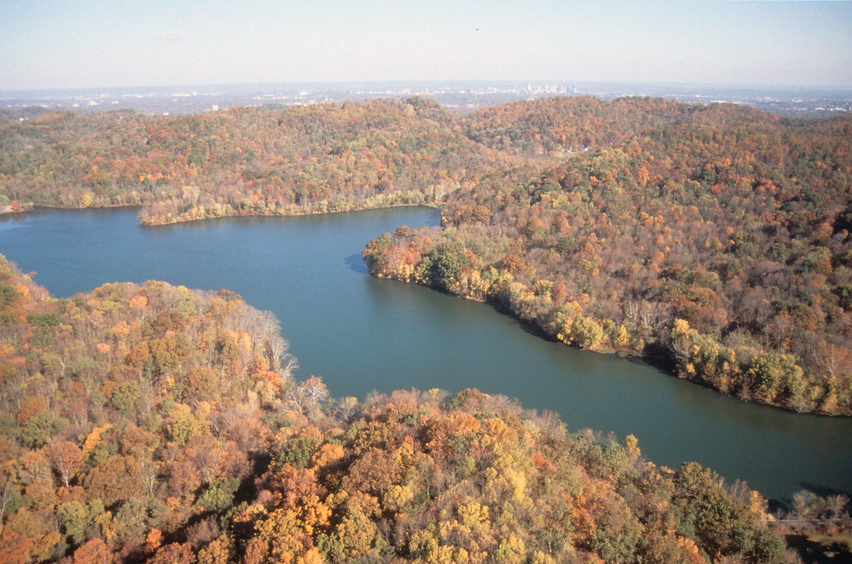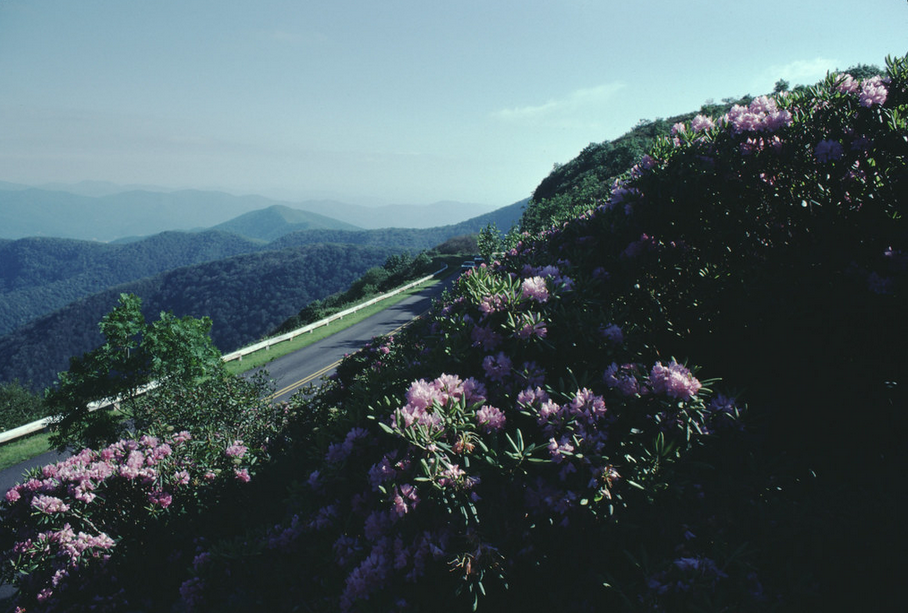Celebrating Mack Prichard, A Tennessee Conservation Leader
“If you had to find an individual who’s been at the forefront of the conservation movement in Tennessee, it would be Mack Prichard,” begins Rick Phelps, co-founder of Southern Appalachian Highlands Conservancy and a former board member at Appalachian Voices. He first met Prichard back in the 1960s on a hike sponsored by the Sierra Club.
Those who knew him described Prichard as a master ecologist, prolific photographer and storyteller. But his influence extended well beyond his friends. He was Tennessee’s first state archaeologist and first state naturalist. In 2006, the General Assembly deemed Prichard “The Conservation Conscience” of Tennessee, and, with the State Senate, granted him the title “Tennessee State Park Naturalist Emeritus.” He retired in 2008, after more than 50 years of service.

Mack Prichard was involved in environmental activism, and documented this sign warning of poisoned fish after a chemical spill in the Mississippi River near Memphis, Tenn. Photo by Mack Prichard, courtesy of Mack Prichard Legacy Project
During his career, Prichard created upwards of 25 active conservation groups, including the Tennessee Trails Association (started in 1968), Tennessee Scenic Rivers, Tennessee Citizens for Wilderness Planning, Southern Appalachian Highlands Conservancy and Tennessee Audubon.
He was actively involved in protecting many of Tennessee’s archeological sites and natural areas from timber, oil, gas and coal exploitation. Prichard is credited with the preservation of Radnor Lake, Savage Gulf and many parts of South Cumberland, Tennessee’s largest and most diverse state park.

Radnor Lake. Photo by Mack Prichard, courtesy of Mack Prichard Legacy Project
Prichard was instrumental in the early development of parks and trails, from working with citizens selling their property to the state to lobbying for funding. He also worked to pass conservation legislation such as the Tennessee Scenic Trails Act and the Tennessee Scenic Rivers Act. But it didn’t end there.
“Mack broadened our horizons,” says Phelps of his influence on the Southern Appalachian Highlands Conservancy. “He taught me much of my understanding of the interlocking aspects of our natural heritage.”
Not only was Prichard’s knowledge of ecology invaluable in understanding non-recreational values of projects, he also had a gift for engaging the public through his writings and numerous photographs. It is estimated that Prichard conducted more than 1,000 public presentations, which were often humorous and peppered with quotations from notable philosophers, according to a Friends South Cumberland State Park.“He exemplified what it means to be an advocate,” continues Phelps, “Mack was sort of a universal man. He was able to speak, with eloquence, to a wide scope of issues.”
“That’s the kind of person Mack was,” says Lisa Luck, Prichard’s niece. “He was always a wonderful person. He was always looking for ways to make your life easier. He was just a thoughtful and generous person and I miss him every single day.”
A celebration of his life is in planning for later this year, but has been delayed due to COVID-19 concerns.
In the meantime, Luck and others have formed the Mack S. Prichard Foundation to honor his legacy. Their goal is to engage in activities to protect and conserve the natural environment in Tennessee.
According to Luck, the foundation is currently creating booklets about Mack’s life, offering scholarships and looking at properties to purchase and preserve. To contact the board with ideas, stories or thoughts, please email macksprichard@gmail.com.
“While Mack may be gone,” says Lisa, “He is not forgotten.”
Prichard dedicated his career to protecting the Cumberlands. One of the key projects he was involved in was the ongoing expansion of Virgin Falls, a state natural area in the Cumberland Plateau. Those who wish to commemorate his legacy are asked to donate to the Friends of Virgin Falls with the memo line “Mack Prichard Foundation.” Mail checks to P.O. Box 390, Sparta, TN 38583. More information on the project can be found at virginfalls.com.
A collection of Prichard’s work can be found at mackprichard.com, compiled by Friends of South Cumberland State Park.
UPDATE: Gov. Bill Lee has designated March 31 as Mack S. Prichard Day.
Related Articles
Latest News
More Stories

Leave a comment
Your email address will not be published. Required fields are marked *
One response to “Celebrating Mack Prichard, A Tennessee Conservation Leader”
-
Mack and Charles Gorman ,Landscape Architect for the Tn Highway department took me on an excursion to the Natchez Parkway around June 1966. I was in a DOT training program as Region Three Landscape Superintendent. That day set up what would become my mission for the Interstate highway’s ROW. Mack described how the mowing limits on the trace wove in and out based on the scenic views. I expanded on those and created the mowing practices and limits on our interstate in middle Tennessee. I oversaw the planting of 4.5 million loblolly pines, miles of native and natural areas. The oldest areas being in Giles and Humphrey counties. Mack suggested that in Dickson county we let the native red buds, wild dogwood and Sumac regenerate. In the spring you can see the colorful displays. I was fortunate to work with him for 10 years with the department of conservation. He was alway making suggestions for our state parks. As landscape superintendent for the 52 state parks at that time, I would go to the park superintendent and we would incorporate Macks ideas on nature based on landscape principles. Mack made a legacy where ever he set foot.







Leave a Comment